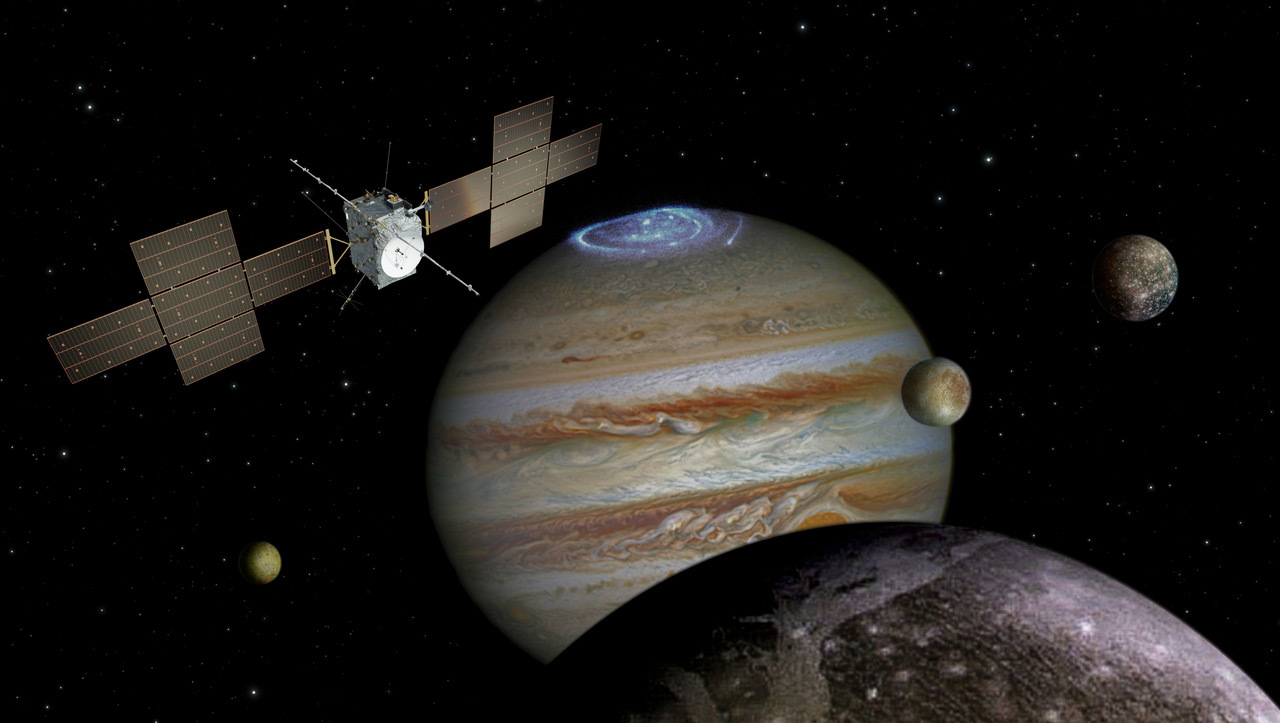The Jupiter Icy Moons Explorer (JUICE) mission will launch into space on April 13. It is designed to study the icy moons of Jupiter. The European Space Agency will carry out a live broadcast of this event.

Launch of the Icy Moons Explorer
Jupiter Icy Moons Explorer (JUICE) mission to explore Jupiter’s Icy Moons. This is reported by the European Space Agency (ESA), which is its developer. The launch will be carried out using an Ariane 5 rocket from a spaceport in French Guiana.
ESA will broadcast the launch from 02:45 p.m. GMT+3. It will be possible to watch it on the official channel of the organization at this link. Everyone will be able to watch the pre-start preparations, and the start is scheduled for 03:15 p.m. GMT+3.
It is expected that the rocket will launch the spacecraft into space and at 03.42 p.m. the spacecraft will separate from its upper stage. It is expected that at 03.51 p.m. the first telemetry signals will be received from it, and at 04.55 p.m. it should deploy its solar panels, after which it will be possible to say that the launch of the mission has successfully taken place.
Juice is equipped with two monitoring cameras that will take pictures of parts of the deployment of the solar battery after launch, and a few days later the deployment of a 16-meter radar antenna. If the relevant images are received, they will be available for publication as soon as possible.
What will JUICE explore
The main purpose of the Juice launch is to explore the three moons of Jupiter: Callisto, Ganymede and Europa. It will also remotely study Io and small bodies near the gas giant. It should map the surface of these celestial bodies in detail and find out what is under it.
For Europa, the existence of an ocean under the ice is considered proven. But for Ganymede and Calisto, it is still a big question. And JUICE should finally solve it. In addition, scientists are interested in the magnetic field of the greatest moon of the Solar System and the possibility of life in the Jupiter system.
According to www.esa.int
Follow us on Twitter to get the most interesting space news in time
https://twitter.com/ust_magazine

